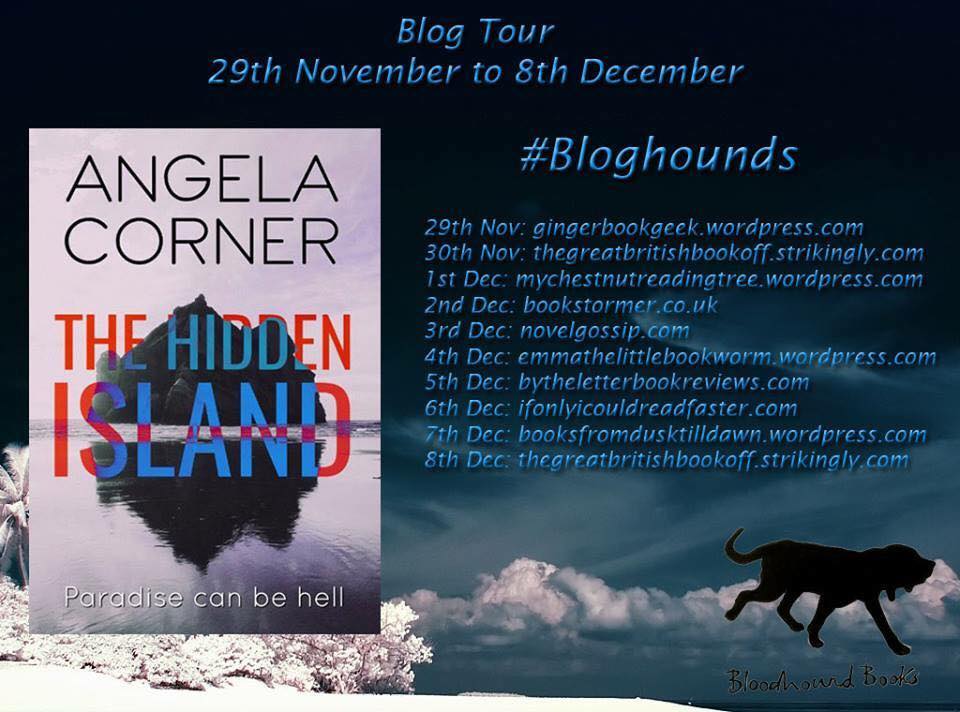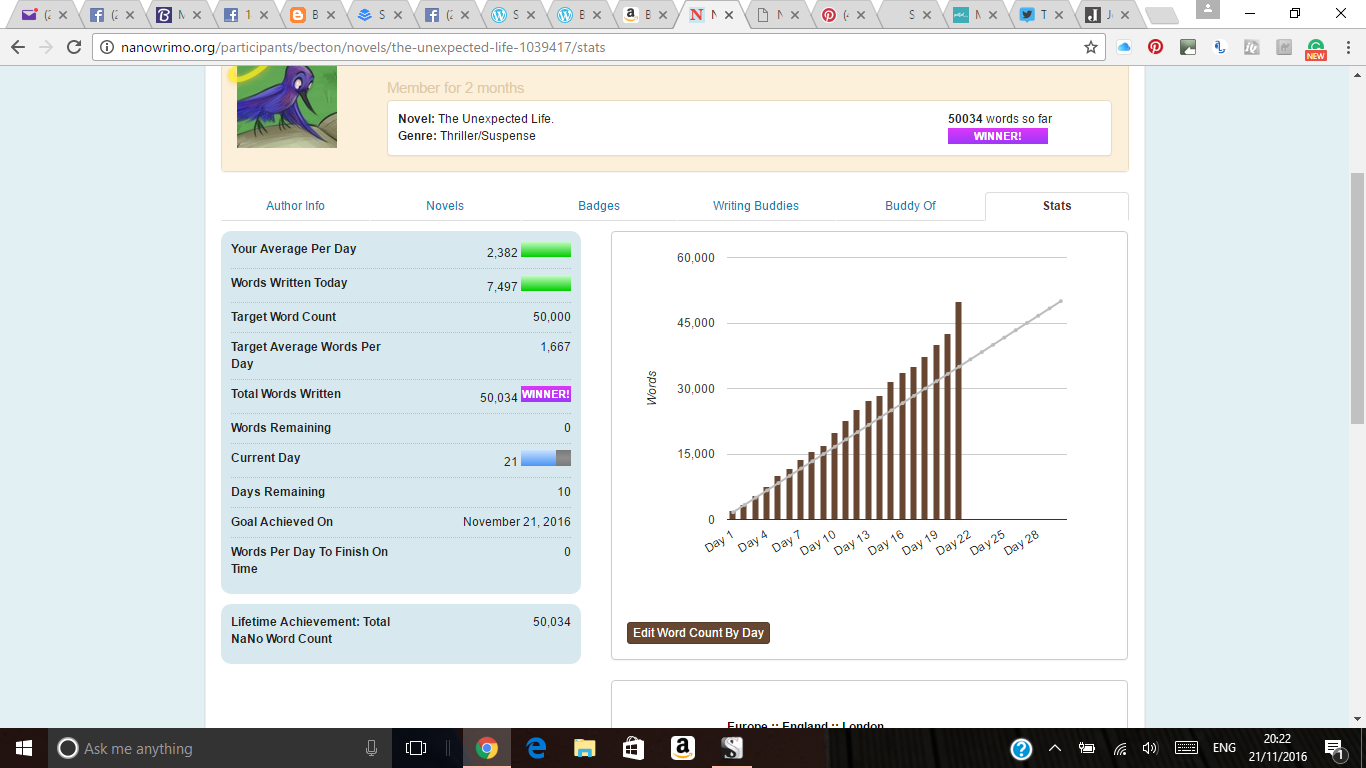
I’m delighted to welcome Rachel Amphlett too If only I could read faster as part of the blog tour for Cradle To Grave. Rachel has written a piece just for us on her writing process. I found it really interesting to read and I hope you will too.
My writing process
These days I’m a full-time author after years fitting it around first full-time work and then a part-time job, but something that hasn’t changed is that every day, I write.
When I started out, I lived on the northern outskirts of Brisbane, Australia. Our suburb was the last stop on the train line into the city and so every morning, I’d find a seat, open my laptop, and write my word count for the day. By the time the train got into Brisbane half an hour later, I’d typically have 500-750 words. I was usually too tired after a day’s work to write, but I maintained this morning habit every day for three years of my writing life.
I’ve carried that habit with me since I got made redundant in mid-2017 and being a writer became my full-time role.
Today, I’ll make a cup of coffee, head up to the spare bedroom that serves as my writing cave, add anything going around in my head to my “to do” list next to my computer so it doesn’t clutter my thoughts, and then settle in to write.
When I first begin a book, I usually have the first scene in my head and a few ideas for other scenes spread throughout the story so I open a new file in Scrivener and start setting out these Chapters. Scrivener is a brilliant app for writing because I can keep all my character profiles, research, location information, and the manuscript all in one place. That way, I’m locked into my story world and not getting distracted by having to open up other documents to find something – or surf the internet!
I write fairly quickly – a first draft typically takes me 8-9 weeks, a bit longer if it’s a standalone novel or the first book in a new series when I’m getting to know new characters and settings. I set a deadline date, tell Scrivener how many words will be in the first draft, and the app spits out a target for the day’s writing. I don’t touch the “to do” list, social media, or emails until I’ve hit that target.
I don’t always hit the target in one go. I’ve been in the habit of working from 8am through to about 9:30am, then take my dog for a walk to blow away the cobwebs and mull over what I’ve written. When we get home, I’ll go back and keep writing until I’ve either hit the target or gone past it. If I’m really flying along in a particular scene, then I won’t stop – I’m not one of those writers who can hit pause and go back to the scene the next day.
Once the first draft is done, I’ll leave it alone for a few days before having a read-through. It takes a few more weeks while my close-knit team of first readers have a look at it before it goes off for edits and a proofread prior to publication.
Of course, while all that’s going on, I’m already writing the next book…
Blurb:
When a faceless body is found floating in the river on a summer’s morning, Detective Kay Hunter and her team are tasked with finding out the man’s identity – and where he came from.
The investigation takes a sinister turn when an abandoned boat is found, covered in blood stains and containing a child’s belongings.
Under mounting pressure from a distraught family and an unforgiving media, the police are in a race against time – but they have no leads, and no motive for the events that have taken place.
Will Kay be able to find a ruthless killer and a missing child before it’s too late?
Cradle to Grave is the eighth book in the Detective Kay Hunter series by USA Today bestselling author Rachel Amphlett, and perfect for fans of Ann Cleeves, Peter James and Stuart MacBride.
The Detective Kay Hunter series:
1. Scared to Death
2. Will to Live
3. One to Watch
4. Hell to Pay
5. Call to Arms
6. Gone to Ground
7. Bridge to Burn
8. Cradle to Grave
About the Author:
USA Today bestseller Rachel Amphlett writes crime fiction and spy novels, including the Kay Hunter British detective series, the Dan Taylor espionage novels, the English Spy Mysteries featuring Eva Delacourt, and a number of standalone crime thrillers.
Rachel is a member of International Thriller Writers and the Crime Writers Association, with the Italian foreign rights for her debut novel, White Gold, being sold to Fanucci Editore’s TIMECrime imprint, and the first four books in the Dan Taylor espionage series contracted to Germany’s Luzifer Verlag.
Her novels are available in eBook, paperback and audiobook formats from worldwide retailers as well as her own stores at http://www.rachelamphlett.com.
You can stay in touch with Rachel via her Reader’s Group by joining at http://www.rachelamphlett.com.
Download the FREE Official Reading Guide and Checklist to Rachel’s books here: https://www.rachelamphlett.com/books/official-reading-guide-and-chechttps://www.rachelamphlett.com/books/official-reading-guide-and-checklist/









 J.F. Kirwan is the author of the Nadia Laksheva thriller series for HarperCollins. Having worked in accident investigation and prevention in nuclear, offshore oil and gas and aviation sectors, he uses his experience of how accidents initially build slowly, then race towards a climax, to plot his novels. An instructor in both scuba diving and martial arts, he travels extensively all over the world, and loves to set his novels in exotic locations. He is also an insomniac who writes in the dead of night. His favourite authors include Lee Child, David Baldacci and Andy McNab.
J.F. Kirwan is the author of the Nadia Laksheva thriller series for HarperCollins. Having worked in accident investigation and prevention in nuclear, offshore oil and gas and aviation sectors, he uses his experience of how accidents initially build slowly, then race towards a climax, to plot his novels. An instructor in both scuba diving and martial arts, he travels extensively all over the world, and loves to set his novels in exotic locations. He is also an insomniac who writes in the dead of night. His favourite authors include Lee Child, David Baldacci and Andy McNab.



